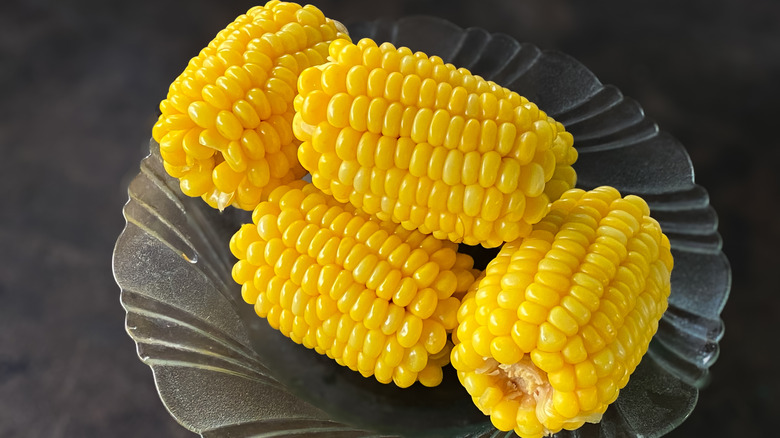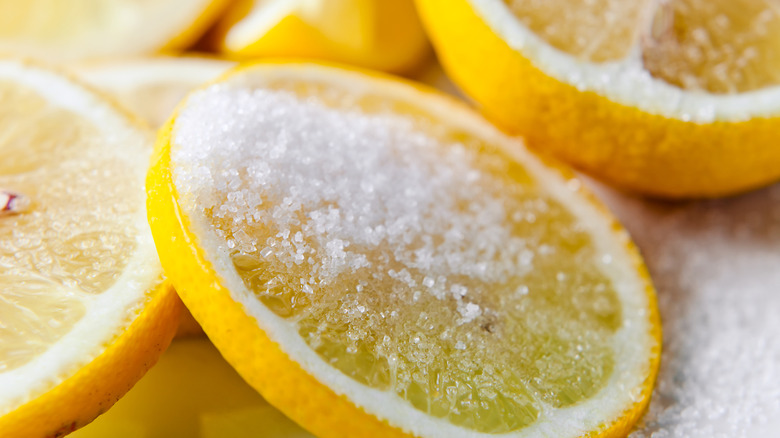Next Time You Make Corn On The Cob, Add These 2 Ingredients To The Water
We may receive a commission on purchases made from links.
Eating corn on the cob is a whole experience, okay? There's a method that one must follow if you are to enjoy it correctly, from proper hand placement to bite technique and even the ceremonial act of picking one's teeth after successfully stripping all the kernels. Once you become a vet in the game, you may start to look for ways to make corn on the cob even more delicious, but you might want to make sure you're doing the basics correctly.
For example, if you've been boiling corn in plain water, you're not doing it wrong per se, but you're definitely missing out. This starchy vegetable is already a favorite, but there's an easy way to take it from "good" to "where has this been all my life?" All it takes is two staple ingredients: sugar and lemon juice. Adding both to the boiling salted water before dropping in the corn helps bring out its natural sweetness while balancing the flavor with just a hint of brightness. The result is corn that you won't even need to drown in butter to enjoy (though no one's stopping you).
Why sugar and lemon bring out the best in corn
Corn on the cob is full of natural sweetness, especially when you pick out the best corn possible with the silk test. When you boil corn, some of that sweetness gets lost to the water, but a bit of added sugar helps reinforce the sweet flavor that's already in the kernels. It's similar to how salt can enhance chocolate or tomatoes — sugar helps highlight and amplify the flavor you expect from good, fresh corn. You don't need a ton; just a spoonful or two for a big pot of water will do the job. Stir it in (along with some salt) before the water starts boiling so it dissolves evenly, then add your corn once it is at a full boil. Because the sweetness comes from the cooking water, it's evenly distributed in every bite.
Lemon juice might sound like an unusual addition, but it plays a quiet and important role in making great corn. A splash of lemon in the boiling water gives the finished corn a subtle tang that helps keep it from tasting one-note. You won't taste any sour or citrusy notes from the lemon itself, but it does balance out the flavor in a way that's hard to describe until you try it.
But flavor isn't the only benefit, as the acid in lemon juice also helps preserve the texture of the corn during cooking. It keeps the kernels plump and prevents them from getting mushy, which can happen if you overcook corn on the cob even slightly. Not only will the corn taste better, but it'll look and feel better too — firm, juicy, and brightly golden.

